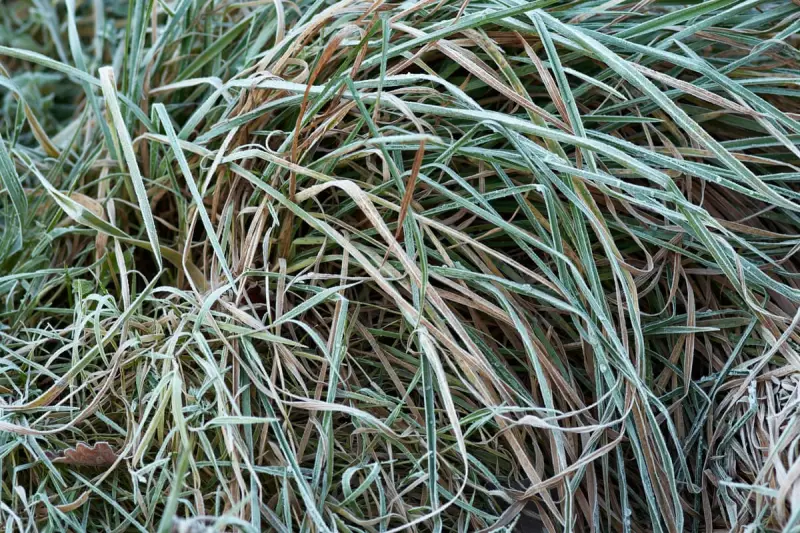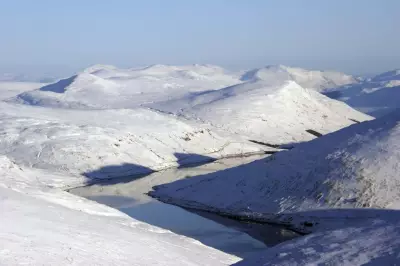
A Morning of Crystal and Stillness
The morning of 18 November 1905 awoke to a world transformed by winter's first proper breath. A delicate, white powder dusted the roof slates, while a crisp ground frost covered the browning grass, its glistening particles catching the low light.
In the sharp, still air, not a leaf stirred. Withered oak leaves, the delicate seeds of ash trees known as ash keys, and the long, green fingers of willow leaves hung perfectly straight and motionless. This stark stillness was a marked change from the previous day, when the damp woods had been alive with dancing gnats.
The Unseen Struggle for Survival
The shift in temperature had an immediate effect on the local flora and fauna. Where buttercups had been found in comparative plenty just yesterday, their flaccid stems now refused to support their blossoms. Flowers became scarcer than ever, with only the stubborn groundsel continuing to open its unobtrusive yellow tips, a hardy weed that pays no count to seasons.
The gnats, so active before the frost, had vanished from sight. The article speculates that foraging tits might still find them hidden in the dark caverns of tree bark and riverbanks. In a vivid description of nature's harsh reality, a spider, curled in a death-like sleep, is snapped up by a probing creeper, utterly unaware of the danger. Winter sights and winter sensations were everywhere.
A Surprising Reason for Germany's Vanishing Swallows
The diary entry is followed by a fascinating report from a correspondent on a pressing issue for German bird lovers. They had been lamenting a significant decrease in swallow populations, with fears the birds were becoming extinct.
A writer in Der Zoologische Garten pointed to several factors. In towns, the proliferation of telephone wires hampered the birds' ability to hunt insects. Furthermore, cleaner streets and the noise from tramcars and traffic had made insects rarer in urban areas, driving them to remote spots the birds could not easily access. In some places, swallows were even observed flying out to the country to fetch mud for their nests because asphalt pavements were kept so clear.
Perhaps the most curious factor, however, was linked to the swallows' winter home. German swallows mostly wintered in Algeria. Before the establishment of modern irrigation works, the land was so dry and barren in summer that insect life became practically extinct, forcing the swallows to migrate back to Germany. Now, with Algeria transformed into cultivated land, an increasing proportion of the feathered visitors were choosing to remain in their winter quarters all year round, with swallows' nests becoming a common sight in the province of Constantine during the summer.





